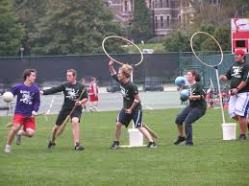Every semester I meet with students who have the same concern, “I’m failing my classes – what can I do?”
I usually respond by trying to find out what the student is already doing.
- Do you go to class
- Are you completing homework on time and handing it in
- Do you read and review the assigned readings
- Are you going to your professor’s office hours and asking specific questions when you do not understand something
- Are you using the learning centers on campus
Usually by the time we get to the end of this list I will find one of two things: a) the student is not doing these things and offers reasons/explanations for why these activities are not possible for them, or b) the student has tried all of these and is still failing.We’ll return to these points in a moment.
I also inquire into a student’s time spent on other activities: do you work; do you belong to a social group; are you involved in a sport; are you gaming online; do you use social media very frequently? Students do not always make a connection between all the time they spend on other activities and a lack of success in classes.
First we will consider the students who are doing everything – going to class, homework, asking specific questions of professors, using learning centers…these students may have a disability which is interfering in learning the material or they may just have a learning style which does not work with the professor’s teaching style. I often advise these students to consider dropping the class they are failing. If a student is failing everything and doing everything – then we have a conversation about needing to change their course of study.
If as a student everything you can do is not enough to be successful in the majority of your classes, you are in the wrong area of study. Education is supposed to be challenging, not painful. Talk to the Career Services or Career Counselors on campus – you need assistance finding a field of study that works better with your strengths and doesn’t emphasize the areas of study where you struggle.
If on the other hand, as a student you are not going to class, handing in homework, asking the professor specific questions – for example, you have tried to complete a problem several times but still do not understand how to reach the correct answer – and you are not reviewing the reading or using learning centers…then I’m not surprised you may be struggling in a class. Students do not always leave high school having learned how to study; often smart students do not need to study in high school and when they are finally challenged in college they aren’t sure how to respond.
If as a student you aren’t sure how to approach studying, then learning centers and academic support will be vital life-lines for you to use. If you have a disability, then you should be talking to the campus disability service provider about academic support that will assist you. Tutors can be very useful also. Finally, look around you for fellow students who do know how to study and talk to them about what they do; some use flash cards, some read their textbooks and make margin notes or use highlighters, they recopy their notes from class – try different techniques like these to help you remember the information from class and the assigned readings.
Also consider the number of classes and the amount of homework you are attempting in the semester. Sometimes students fail because they try to fit too many classes and/or social activities/work activities into their limited number of hours each day. If the classes you are taking result in more hours needed for homework then as a student you have available, at least one class needs to be dropped.
If social activities and/or work are adding too many extra obligations to a student’s limited hours, then these other activities either need to be cut down or eliminated.
If a student needs to work to support herself then being a full time student may not be possible; it may be better to take one or two classes at a time. If on the other hand, a student is determined to be a full time student, then work may need to be cut down or eliminated during the semester if work is taking too much time from study/classes.
I often meet students who feel frustrated; they feel like they have tried everything and nothing works to help them be more successful. Often though, they have tried just what they can think of and there are actually options which they have not considered, or there are options that they have dismissed without trying. And sometimes I meet students who give up on an option too quickly, “I tried the learning center once and it didn’t help.” I’ll then remind the student that many people work in a learning center and just because the first person they met with wasn’t a good match, doesn’t mean they shouldn’t go back to the learning center and try meeting with a different person.
Sometimes talking to a person in the Dean of Students or Chancellor’s office, or an academic advisor can help students think of a strategy for success that hadn’t occurred to them yet, or may even allow a student to become aware of a service on campus that they didn’t know about.
Students – do not suffer in silence. If as a student you feel like you’ve done everything you can think of and still are not being successful then reach out for some assistance. Or maybe you know there are things you need to do differently but are struggling to take the next step. Either way, you can talk to your academic advisor, or disability support person, or make an appointment with the Dean of Student’s Office or Chancellor’s Office…there is academic support available on campus if you are willing to seek it out. Make an appointment to talk to someone who can assist you!





